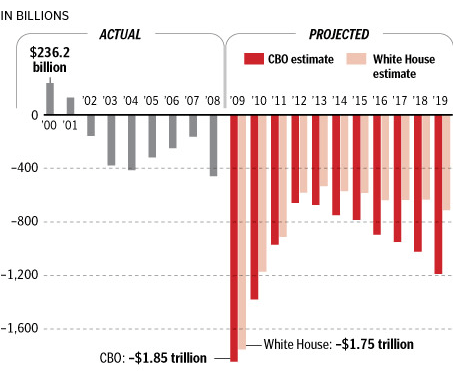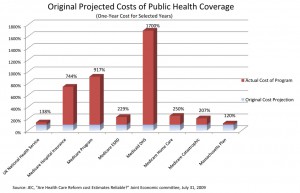The "bank tax" is unconstitutional and illegal
I listen to the President's Weekly Radio Address every week. It's usually a painful process, since I almost always disagree with the President. (That's been true for both President Bush and President Obama, in case you're wondering.)
Last week's address was particularly painful. It was almost scary to listen to. The President spoke quite passionately about his desire to tax big banks to pay for the assistance they've received over the past 2 years. This is part of what he had to say (emphasis added by me).
Much of the turmoil of this recession was caused by the irresponsibility of banks and financial institutions on Wall Street. These financial firms took huge, reckless risks in pursuit of short-term profits and soaring bonuses. They gambled with borrowed money, without enough oversight or regard for the consequences. And when they lost, they lost big. Little more than a year ago, many of the largest and oldest financial firms in the world teetered on the brink of collapse, overwhelmed by the consequences of their irresponsible decisions. This financial crisis nearly pulled the entire economy into a second Great Depression.
As a result, the American people - struggling in their own right - were placed in a deeply unfair and unsatisfying position. Even though these financial firms were largely facing a crisis of their own creation, their failure could have led to an even greater calamity for the country. That is why the previous administration started a program - the Troubled Asset Relief Program, or TARP - to provide these financial institutions with funds to survive the turmoil they helped unleash. It was a distasteful but necessary thing to do.
Many originally feared that most of the $700 billion in TARP money would be lost. But when my administration came into office, we put in place rigorous rules for accountability and transparency, which cut the cost of the bailout dramatically. We have now recovered most of the money we provided to the banks. That's good news, but as far as I'm concerned, it's not good enough. We want the taxpayers' money back, and we're going to collect every dime.
That is why, this week, I proposed a new fee on major financial firms to compensate the American people for the extraordinary assistance they provided to the financial industry. And the fee would be in place until the American taxpayer is made whole.
Reading the President's address now, it sounds bland and reasonable. But listening to it was a different experience. The President sounded angry and distinctly sounded like he wanted to punish the banks for ever daring to make trouble. He sounded like what he really wanted was to make the banks pay for the entire cost of the stimulus bill. I was deeply disturbed, as I listened to the speech, to the hear the President so angrily attacking and villianizing a specific industry.
Here's the thing. Not all of the banks that received government help wanted government help. Some of them were strong-armed into accepting the help. The President's new "fee" doesn't account for that. Nor does it account for the fact that not all large banks even received help. Nor does it account for the fact that some banks were healthy throughout the crisis and had no rule in causing the crisis. No, the President's "fee" taxes all banks equally, just for the sin of being big.
As I listened to the speech, I wondered if the plan was even Constitutional. As I said, it sounded like he really wanted to lay into the banking industry, to punish it. And the Constitution specifically forbids a "bill of attainder". What's that? It's when Congress passes a bill declaring someone guilty of a crime -- and punishing them -- without giving that person the benefit of a trial. And the President's language and tone sounded dangerously close to someone who wants to declare the entire banking industry guilty of "crimes against America" and then punish them.
It turns out, that I'm not the only person to think this is un-Constitutional. John Carney writes in The Business Insider Law Review that he's recently concluded that the proposed bank tax is an illegal bill of attainder.
Read his full piece for a much better explanation of the concept of a "bill of attainder", as well as some great examples. Here is his conclusion.
The Financial Crisis Responsibility Fee is unconstitutional on its face. It is as if the Obama administration had urged a tax called "The Fee That Violates Nonattainder Principles." Assigning responsibility after the matter and levying penalties is reserved for the judicial branch that is restricted to using already existing laws and treating similarly situated people equally. The Obama administration wants to assign responsibility for the financial crisis and levy a fee, while exempting its favored automakers. This is exactly the sort of thing the Attainder Clause was put in place to prevent.
This entry was tagged. America Barack Obama Fiscal Policy Justice Taxes U.S. Constitution

